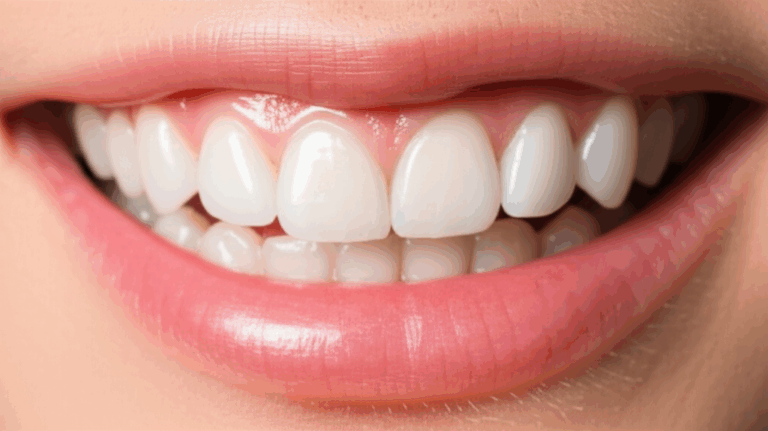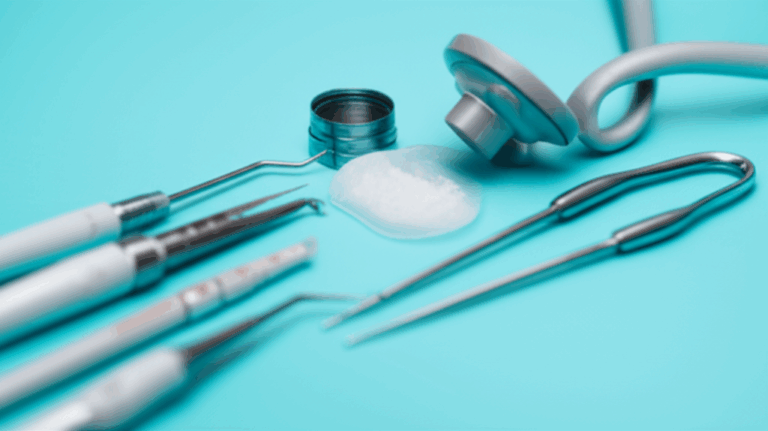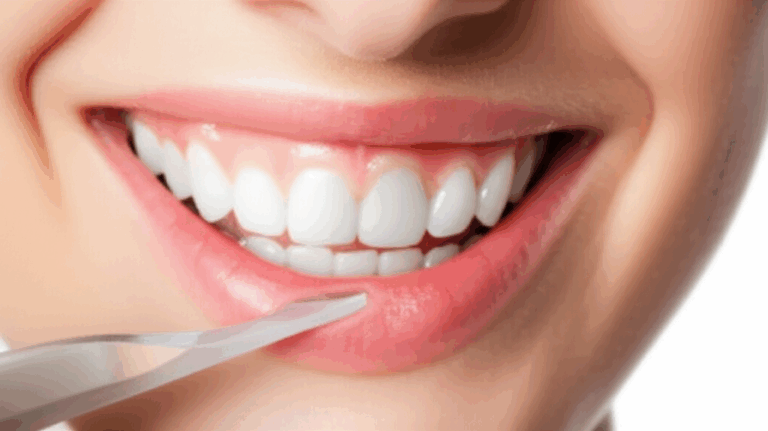
How to Become a Dentist in the UK as an International Student: My Personal Guide
Table of Contents
- Academic Requirements
- English Language Proficiency
- Admissions Tests
- Gaining Work Experience
- What I Learned About UCAS
- Writing a Standout Personal Statement
- Researching and Picking the Right University
- Preparing for Interviews
- Tuition Fees
- Living Costs and Budgeting
- Scholarships and Financial Aid
- Financial Evidence for the Visa
- Meeting Eligibility
- Visa Documents and Timeline
- The Graduate Route After Study
- Adjusting to a New Education System
- Finding Support & Balance
- The GDC Registration Process
- Dental Foundation Training
- ORE/PLVE for Internationally Qualified Dentists
- Jobs and Career Pathways
- Further Training
- Long-Term Possibilities
Introduction: My Journey Toward UK Dentistry
When I first thought about studying dentistry in the UK as an international student, I felt both really excited and quite stressed. The steps weren’t always simple, and every part came with new questions. Over time, I got help from good mentors, admissions staff, and dentists like Dr. Joe Dental, whose advice helped me find my way. In this guide, I’ll break down all the must-know bits, sharing what really happened to me, so you don’t have to start from zero or feel confused on your journey.
Understanding UK Dentistry for International Applicants
Dentistry in the UK is known for its tough rules, good hands-on training, and respected degrees. The General Dental Council (GDC) looks after all dental workers here. Dental schools like King’s College London and Manchester are famous for their programs. The National Health Service (NHS) is also a big part of training in the UK. But for international students, getting into a UK dental school is harder than at home.
If you want to work in places like London or Manchester, you need to know each step and the tough spots along the way. You need more than just good grades—it’s also about getting through applications, visas, money, and starting a new life in the UK.
Stage 1: Pre-Application & Eligibility
Academic Requirements
The first thing I did was check if what I’d studied before matched what UK dental schools want. Here’s what I learned:
- A-Levels and Equivalents: Chemistry and Biology are a must. Most schools want both, with top grades like AAA or AAB. If you’re doing the International Baccalaureate, you need high marks in those subjects. Some schools will take other types of exams, but you have to get the right grades in the right subjects.
- Minimum Entry Grades: UK dental schools are strict. Places like King’s College London won’t look at your application if you don’t meet their grade rules. Some students I met waited a year or did a foundation year to get in.
English Language Proficiency
Next, I had to show my English was good enough. You need to do the IELTS Academic (usually a 7.0 overall, 6.5–7.0 per part) or the OET (overall Grade B). Don’t skip this—it’s needed for the university and later for the GDC too.
I spent a whole summer getting ready for these tests, and practicing really helped, especially because I didn’t speak English every day.
Admissions Tests (UCAT & BMAT)
A lot of people don’t realize how important these tests are. Nearly every UK dental school wants the UCAT. Only a few want the BMAT for dentistry.
I worked hard on the UCAT, which is about thinking quickly and solving problems—not just memory. I used online practice tests and timed myself like the real exam. Getting good at this test got me interviews.
Gaining Work Experience
This is how I made my application real. I followed dentists in my home country and helped at a local clinic. If you can get experience in the UK, that’s even better, but any real hands-on or watching dentists work is helpful. Schools want to see that you really know what the job is like. They want you to know both the fun and the hard parts.
Stage 2: The Application Process (UCAS)
What I Learned About UCAS
You can’t just apply to UK universities as an international student. You use UCAS (Universities and Colleges Admissions Service). You can choose up to four dental schools, not five! The deadline is strict—dentistry is an “early entry” subject, so you have to finish the application by mid-October. I set calendar reminders to make sure I didn’t forget.
Writing a Standout Personal Statement
My personal statement was super important. I wrote honestly about why I liked dentistry, what I learned from shadowing, and times things didn’t go to plan (like when I almost failed organic chemistry). I talked about building models as a hobby, to show I’m good with my hands—admissions staff like to hear about that. My main tip: write it true. Give stories about why you like helping people.
Researching and Picking the Right University
Each school is a bit different. I spent a lot of time looking at what courses really teach, how they teach, and how they help students from abroad. Where you live also matters—a busy city or smaller town changes your everyday life.
Some schools, like King’s College London, give you patient work early on, while Manchester has strong research. Don’t just look at rankings. Think about support for students and what feels right.
Preparing for Interviews
If you get this far, be happy! But you still have work to do. UK dental interviews can be MMIs (Multi Mini Interviews) or panels. You’ll get questions about right and wrong (like what if a patient is being neglected?), simple tests with your hands (like tying knots), and why you want to be a dentist.
I practiced answers with friends and recorded myself to catch mistakes. When I messed up, I reminded myself: They want to see how you think, not just what you know.
Stage 3: Funding Your UK Dental Degree
Tuition Fees
Studying dentistry in the UK isn’t cheap. I saw fees from £30,000 to almost £50,000 each year, depending on the university—London schools are more expensive. You pay for five years (sometimes more, if you do a foundation year).
Living Costs and Budgeting
Living in the UK, especially in London, costs a lot. My friends outside London spent about £12,000–£15,000 a year. In London, it was up to £20,000. Rent, food, travel, books, and fun add up. I learned to keep a close eye on my spending so I didn’t run out of money.
Scholarships and Financial Aid
The good news: Some schools give part-scholarships to really good students from abroad. I also found some grants, but they are hard to get, and some are just for people from certain countries. Big awards like the Chevening and Commonwealth are possible, but often just for master’s students.
Most loans are for UK students, so I checked for loans from my own country. Checking school websites for help and deadlines is a good idea.
Financial Evidence for the Visa
When you apply for your visa, you have to show you have enough money for the first year’s tuition and living costs (usually about £1,334 each month in London, or £1,023 per month elsewhere, for up to 9 months). Keep every bank paper you get—you’ll need them all for your Student Visa application.
Stage 4: Student Visa & Immigration
Meeting Eligibility
When I got a university offer, I got a Confirmation of Acceptance for Studies (CAS) letter. The visa process meant I needed lots of documents: my CAS, passport, proof of money, English results, and health details. I checked every form again and again, because mistakes cause big delays.
Visa Documents and Timeline
I sent in my visa application online and made a biometrics appointment. Getting my visa took about three weeks. I started as soon as I got my CAS letter—don’t wait or you’ll run out of time! If you want to bring your family, it needs more paperwork and more proof of money.
The Graduate Route After Study
One big bonus of studying in the UK is the Graduate Route. This work visa lets you stay and work (or look for work) for two more years after graduating. I used this time to finish my Dental Foundation Training and get used to the job market in the UK. It’s not forever, but it helps you go from student to employee.
Stage 5: Life as a UK Dental Student
Adjusting to a New Education System
I didn’t realize how different school would be in Britain. There are group classes, lectures, and hands-on work with patients, sometimes right from year one. Tests include everything from essays to clinical work.
At first, I found it hard to balance study and hands-on practice. If you struggle, talk to teachers or college helpers. UK schools have lots of support for students from overseas.
Finding Support & Balance
I felt homesick and weighed down by work sometimes. Luckily, UK colleges go out of their way to help students who aren’t from the country. I met people through clubs, international events, and part-time jobs (within visa limits) to earn extra cash and get life experience.
It was hard to mix work and fun at first, but taking free time and asking for help helped me a lot.
Stage 6: After Graduation – Registering and Working as a Dentist
The GDC Registration Process
Finishing dental school in the UK is just part one. To work as a dentist, you have to register with the General Dental Council (GDC). It’s simple for UK grads—just paperwork, fees (about £800–900), and proof of English.
If you got your dental degree outside the UK, it’s harder. You must pass the GDC’s Overseas Registration Exam (ORE), which is tough and expensive.
Dental Foundation Training (DFT)
All new UK dental grads must do a year of Dental Foundation Training (DFT). I got my spot after applications and an interview. In DFT, I worked in an NHS dentist surgery under another dentist, which helped me learn with real patients.
You must finish DFT before you can work alone as a dentist in the UK, NHS or private. This year shapes your first steps in work.
ORE/PLVE for Internationally Qualified Dentists
If you became a dentist outside the UK or EU, you must pass both parts of the ORE test—a really tough exam—then finish a time of supervised work (PLVE) to register with the GDC. Lots of people I met followed this, and they say it’s hard, but the jobs after are worth it.
Jobs and Career Pathways
After DFT, I looked at jobs in both NHS and private surgeries. NHS jobs have steady patients and clear pay (starting salary for new dentists is about £30,000–£40,000). Private jobs can earn more after you build a good name. Joining dentist groups and going to meetings can help you find your first job. The right conversation can open doors.
Career Progression and Specialisations
Further Training
Dentistry isn’t a dead-end pathway. Many people I studied with began to specialize—in things like braces (orthodontics), surgery, gum diseases, and more. These need extra study and sometimes exams or real work experience first.
Some classmates went into dental research, teaching, or public health courses (master’s or PhD). You can switch what you do in dentistry almost anytime.
Long-Term Possibilities
I was surprised by how many ways a UK dental degree can take you. Some people now run their own clinics, teach, or manage research projects, often in the NHS. If you like new technology, dentistry is growing all the time (see things like digital dental lab for example).
Challenges and Key Considerations
Here’s what I wish I knew at the start:
- Competition: Places for overseas students are small (often just 7.5% of spots), with more than 20 applying for one spot in some schools.
- Money Stress: With fees and costs to live, dental school in the UK can cost over £200,000.
- Visa Stuff: Visa rules are strict. Miss a rule (like bank statements or test scores) and your application could get stuck or rejected.
- Culture Shock: Everything, from learning to making friends, is different at first. But you can adjust.
- Work Limits: Your visa lets you work part-time only—a little cash, but not enough for the big bills.
Conclusion: Is the UK Dental Path Right for You?
Choosing to study dentistry in the UK as an international student changed my life. It was hard, it opened up chances I never dreamed of, and helped me meet people from all parts of the world. If you’re hardworking and serious, it’s a path worth taking.
Read up on every step, ask questions (the British Dental Association and your school’s international office are good places to begin), and talk to students who already did it. For useful hints, you can check out guides like dental practical guide.
I hope my story and advice help you feel ready. No matter your background, being ready and working hard are your biggest strengths. Good luck on your way to becoming a dentist in the UK! Remember, every great smile starts with one small step.
This guide is based on my own journey and checked by dentists like Dr. Joe Dental for accuracy. Always double-check details with your university and the GDC, because they can change. For more patient stories, see patient dental.








